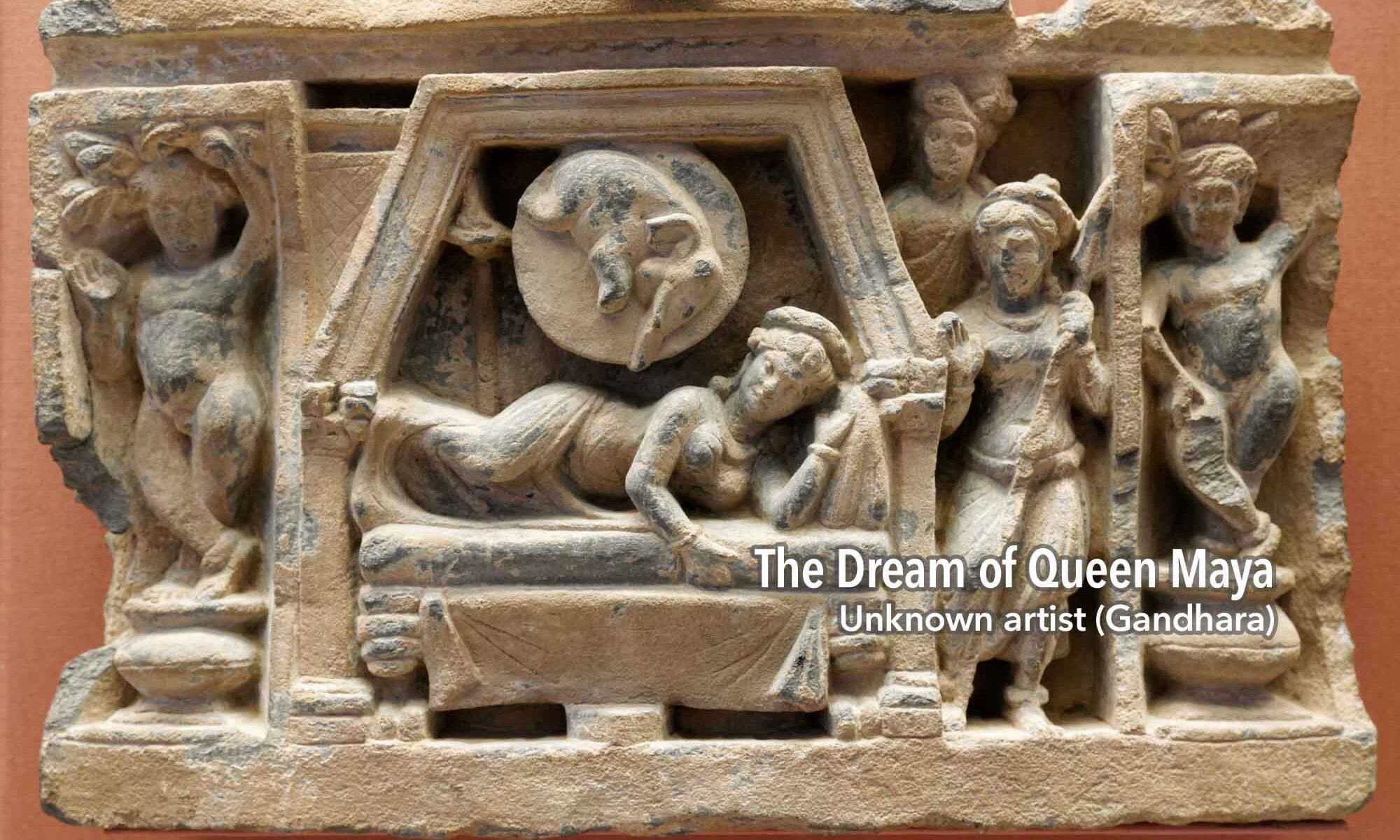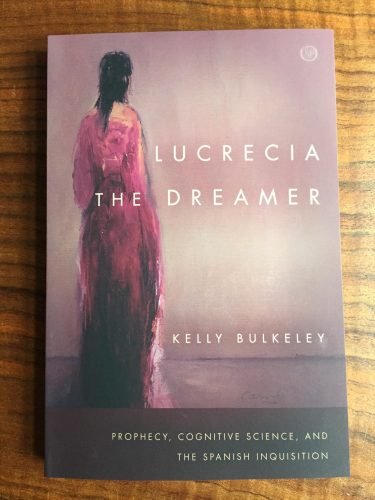 Peeling away Freudian assumptions to reach a deeper human truth about the capacity to love.
Peeling away Freudian assumptions to reach a deeper human truth about the capacity to love.
A radiant new production of the musical Oklahoma! at the Oregon Shakespeare Festival re-interprets a classic American love story for contemporary audiences. With bold innovations in casting, staging, and choreography, the OSF production differs in many ways from the 1943 Broadway stage version and the 1955 Oscar-winning film. Far from changing the story, these innovations amplify and extend its original, joyful spirit.
This is especially true with “the Dream Ballet,” the elaborate dance sequence that ends Act I. Created by the legendary Agnes de Mille, the Dream Ballet has become an icon in the history of American musicals. The new OSF production, directed by Bill Rauch and choreographed by Ann Yee, intensifies the emotional energy of this central moment in the play and deepens our psychological insight into the feelings and motivations of the characters.
At the risk of theatrical heresy, I will say the OSF production of the Dream Ballet is better than the original. It goes further in illuminating the emotional heart of this dramatized nightmare, and it peels away the original version’s mistaken psychoanalytic assumptions about female sexuality to reveal a deeper human truth about the capacity to love.
 A quick recap of the plot: Set in the Oklahoma territory in 1906, just before official statehood, the story revolves around two love triangles. In one, a cowboy (Curly) and a farmhand (Jud) vie for the affections of a farmer’s daughter (Laurey). In the other, cowboy Will Parker and Ali Hakim, a Persian traveling salesman, are both involved with Ado Annie, one of Laurey’s girlfriends.
A quick recap of the plot: Set in the Oklahoma territory in 1906, just before official statehood, the story revolves around two love triangles. In one, a cowboy (Curly) and a farmhand (Jud) vie for the affections of a farmer’s daughter (Laurey). In the other, cowboy Will Parker and Ali Hakim, a Persian traveling salesman, are both involved with Ado Annie, one of Laurey’s girlfriends.
The OSF production makes two significant changes in casting. Curly is played by a woman, Tatiana Wechsler, and Ado Annie is now Ado Andy, played by a man, Jonathan Luke Stevens. The love triangles are the same, but the gender dynamics have changed, and the Dream Ballet changes, too.
The new production makes it easier to recognize that Laurey’s dream is not about a romantic choice between Curly and Jud. The preceding scenes make it clear that Laurey only agreed to go to the Box Social with Jud in order to spite Curly (“I did it because Curly was so fresh”), and she confesses to Aunt Eller that she’s deeply scared of the brooding, resentful Jud: “Sumpin’ wrong inside him, Aunt Eller… I know what I’m talkin’ about.” In the OSF version, Laurey’s romantic desires are obviously inclined toward the female Curly, which doubly emphasizes her sexual disinterest in Jud.
What, then, is Laurey dreaming about, if not a choice of Jud versus Curly?
The dream begins with a playfully sensual dance, in which Laurey revels in the pure freedom of movement and feeling that open up to her within this imaginal space. A spotlight tracks her as she dances and floats across the stage, casting an enormous, graceful shadow on the screen behind. Then Curly enters the dream and joins her dance, along with other shadow spirits who further enliven the increasingly romantic atmosphere. The dancing gradually morphs into a beautiful wedding procession. But just as Laurey is ready to pledge her vows to Curly, Jud steps between them.
Everything suddenly darkens, as Jud takes control of the dream space and everyone’s behavior within it. He seizes Laurey, casts Curly aside, and forces all the other characters to conform to his personal desires, desires that have been stoked by the pornographic pictures in his smoke house. The women from these pictures now enter into the dream and move around the stage like harlequin puppets, mimicking sexual acts with a robotic lack of emotion.
The most striking innovation in the OSF version of the Dream Ballet occurs at this point, when Jud commands that two characters with non-traditional gender presentations be forced to switch their clothing, so they look like a “normal” man and woman.
Laurey seems utterly helpless as Jud imposes his will on her dreamscape, turning it into a nightmare of paralyzing weakness and vulnerability. When Jud rises up against Curly and violently attacks her, pounding her with wooden logs and punching her mercilessly, Laurey is terrified that Curly might actually die under the assault.
At that moment, Laurey’s agency suddenly returns. She steps between them, letting Jud know she will accept him if he will let Curly live. Jud agrees, the violence ceases, and the dream ends.
If, as I’ve suggested, the dream is not about Laurey’s romantic indecision between Curly and Jud, then perhaps their presence in her dream should be viewed in less literal terms. Perhaps their significance is more symbolic or metaphorical in meaning.
A good way of testing that idea is to apply the “Gestalt” approach of psychologist Frederick Perls (1893-1970). Perls taught that one way to explore dreams is to treat them as inner theatrical productions, with every element of the dream—each object, setting, and character—representing some metaphorical aspect of the dreamer’s own personality. The dramatic conflicts in dreams reveal parts of ourselves that are immature, alienated, or not yet integrated. The better we understand these conflicts, the more fully we can grow into our innate potentials for health and wholeness.
This is just one way to look at dreams, and many others could be validly applied here. But let’s see where a Gestalt approach leads.
For Laurey, her conflicts in the play revolve around one of the most frightening experiences of human life: falling in love. If she yields to her feelings for Curly, Laurey will have to let down her guard and emotionally open herself more than she ever has before. She will become a new interpersonal being, a sexually mature adult, an intimate romantic partner. To fall in love is to undergo a total transformation of the self. The first scenes of the play make it clear that Laurey is, indeed, falling deeply in love with Curly, who just as clearly loves her back. But for some reason, Laurey cannot openly express her feelings. What’s holding her back?
This is where the Gestalt approach may help. Using this method, we look for aspects of Laurey’s personality that can be described metaphorically as an “inner Jud” threatening to destroy her budding love with Curly. And here, I believe, we come to an intriguing notion. At least twice in the early parts of the play, Laurey behaves in quite Jud-like ways.
First, Laurey’s response to Curly’s songs to her (“The Surrey with the Fringe on Top” and “People Will Say We’re in Love”) follows the same emotional trajectory as Jud’s response to Curly’s song to him (“Poor Jud”)—their initial enchantment with Curly’s alluring visions turning to bitterness and disillusionment at how far the visions fall from reality. Laurey berates Curly after the “Surrey” song, saying “Why’d you come around here with yer stories and lies, gittin’ me all worked up that-a-way?”, before furiously slamming the door on her. Laurey’s angry distrust blocks her from accepting the uncertain future of a romantic relationship with Curly, just as Jud’s angry distrust prevents him from forming any kind of relationship at all.
Second, when Laurey accepts Jud’s invitation to the Box Social, her goal is not to spend more time with Jud, but rather to provoke a jealous reaction in Curly. Whether intentionally or not, Laurey tries to manipulate both of them to suit her personal needs and desires. She treats Jud as an impersonal tool, and Curly as a passive object for her to control. This is ultimately Jud’s deepest character flaw: his obsession with dehumanizing fantasies of power and control that seem to fulfill his wishes but in fact only make it harder for him to become truly intimate with real humans.
None of this is to suggest that Laurey is exactly like Jud in all ways, or that we should feel more sympathy for his violent behavior. Rather, this Gestalt-informed approach suggests the Dream Ballet is a metaphorical vision of why exactly Laurey is having so much difficulty letting herself fall in love: She’s too much like Jud. To enter into a truly mutual and loving relationship with Curly, Laurey must first deal with the problematic qualities she shares with Jud. As her dream vividly portrays, these qualities will kill any chance of a real relationship with Curly.
Laurey seems unable to stop Jud’s attacks on Curly in the dream, until she makes the active, conscious decision to embrace Jud. Again, this does not signal Laurey’s romantic preference for Jud. In a Gestalt view, this means that Laurey realizes in the dream the only way to save her love for Curly is to take responsibility for her own Jud-like qualities and grow into a larger self that can encompass these energies without being overwhelmed or dominated by them. This greater emergent self is prefigured in the OSF production with Laurey’s magnified dancing shadow, a dark but graceful harbinger of growth to come.
To sum it up in Shakespearean terms, Laurey comes to a realization similar to that of Prospero at the end of The Tempest: “This thing of darkness I acknowledge mine.” (V.i.275-276)
Unfortunately, when Laurey awakens she immediately (mis)interprets the dream in a literalistic way, as instructing her to choose Jud over Curly. It takes the second act of the play for Laurey to recognize her mistake and learn how to express her true feelings. She finally agrees to join Curly in marriage, and she rallies the strength to confront the “outer” Jud and tell him he’s fired. In both instances, Laurey speaks with greater confidence, maturity, and passion than ever before. She has indeed grown to become a newly conscious being, sure of her own expanded power, and yet willing to open herself fully and lovingly to another.
I would offer this same argument about the meaning of the Dream Ballet in the original production of Oklahoma!, but it would be a tougher case to make. This is why I say the OSF production is better than the original, which was overlaid with so many Freudian preconceptions that Laurey’s deeper conflict is harder to appreciate.
According to Freud, whose psychoanalytic theories were enormously influential in the mid-20th century United States, dreams are fantasy fulfillments of unconscious wishes, usually sexual, that remain unfulfilled in waking life. The Dream Ballet seems to fit this theory perfectly: Laurey naturally desires a sexual relationship with a real man, not a boy, and Jud’s postcard girls symbolize her own repressed erotic wishes. Laurey’s mind may prefer Curly, but her loins favor the hot, fiery Jud. To resolve this conflict and fulfill her unconscious wish, the dream sets it up so that Laurey’s embrace of Jud appears to be a morally virtuous self-sacrifice, rather than the lustfully satisfying fantasy it truly is. Both ego and id get what they want.
In the original staging, with Jud and Curly cast as men, such an interpretation makes a superficial kind of sense, especially with Curly having a gun in the dream that won’t shoot, a classic Freudian symbol of male impotence. And yet this interpretation depends on a theory about “hidden” female sexual desire that is problematic, to say the least. It suggests Laurey’s resistance to Jud is actually repressed unconscious desire. When she says no to him, she’s really wanting to say yes.
As I’ve noted above, there is nothing in the text to justify the idea that Laurey is romantically attracted to Jud. Only if Freud’s mistaken ideas about unconscious female sexuality are smuggled into the story can Laurey’s character and dream be interpreted in this way.
The OSF production liberates Laurey from these psychoanalytic shackles and brings forth a more authentic dimension of meaning in her dream that was always there, but not as evident in the original version. With Curly cast as a woman, it becomes clearer than ever that Laurey’s deepest conflict is not simply about sex, but about love—the frightening, exhilarating, and transformative experience of falling in love with another person.
Note: this post was first published in Psychology Today, May 2, 2018.
 An international group of artists join together to explore their dreams.
An international group of artists join together to explore their dreams.
 Peeling away Freudian assumptions to reach a deeper human truth about the capacity to love.
Peeling away Freudian assumptions to reach a deeper human truth about the capacity to love. A quick recap of the plot: Set in the Oklahoma territory in 1906, just before official statehood, the story revolves around two love triangles. In one, a cowboy (Curly) and a farmhand (Jud) vie for the affections of a farmer’s daughter (Laurey). In the other, cowboy Will Parker and Ali Hakim, a Persian traveling salesman, are both involved with Ado Annie, one of Laurey’s girlfriends.
A quick recap of the plot: Set in the Oklahoma territory in 1906, just before official statehood, the story revolves around two love triangles. In one, a cowboy (Curly) and a farmhand (Jud) vie for the affections of a farmer’s daughter (Laurey). In the other, cowboy Will Parker and Ali Hakim, a Persian traveling salesman, are both involved with Ado Annie, one of Laurey’s girlfriends. Pro basketball players and coaches suffer chronic sleep deprivation. Can they find help in their dreams?
Pro basketball players and coaches suffer chronic sleep deprivation. Can they find help in their dreams? On May 25, 1590, by direct order of King Philip II, the Spanish Inquisition arrested a young, uneducated woman from Madrid named Lucrecia de Leon on charges of heresy and treason. She was brought to a secret prison in Toledo, interrogated, and tortured to make her confess her guilt. The evidence against her was overwhelming. She had been caught conspiring with known rebels, publicly slandering the king, defying direct orders from the church, and stirring up dissent against the imperial government.
On May 25, 1590, by direct order of King Philip II, the Spanish Inquisition arrested a young, uneducated woman from Madrid named Lucrecia de Leon on charges of heresy and treason. She was brought to a secret prison in Toledo, interrogated, and tortured to make her confess her guilt. The evidence against her was overwhelming. She had been caught conspiring with known rebels, publicly slandering the king, defying direct orders from the church, and stirring up dissent against the imperial government. A brilliant exploration of the dark psychological depths of sexual desire appears in an unlikely place—a country musical from the 1940’s.
A brilliant exploration of the dark psychological depths of sexual desire appears in an unlikely place—a country musical from the 1940’s.
 Following the death a few weeks ago of Jeremy Taylor and his wife Kathy, I spoke with their daughter Tristy, and we agreed that I would take responsibility for moving, storing, and preserving his professional books and papers. Tristy understands that her father had a major influence on the contemporary study of dreams, and his works will have an enduring historical significance for the field. I told her that my wife and I have recently begun working with an architect to design a study and library devoted to dream research on property we own near Portland, so I can offer a place where his collection will be available to other dream investigators in the future.
Following the death a few weeks ago of Jeremy Taylor and his wife Kathy, I spoke with their daughter Tristy, and we agreed that I would take responsibility for moving, storing, and preserving his professional books and papers. Tristy understands that her father had a major influence on the contemporary study of dreams, and his works will have an enduring historical significance for the field. I told her that my wife and I have recently begun working with an architect to design a study and library devoted to dream research on property we own near Portland, so I can offer a place where his collection will be available to other dream investigators in the future.